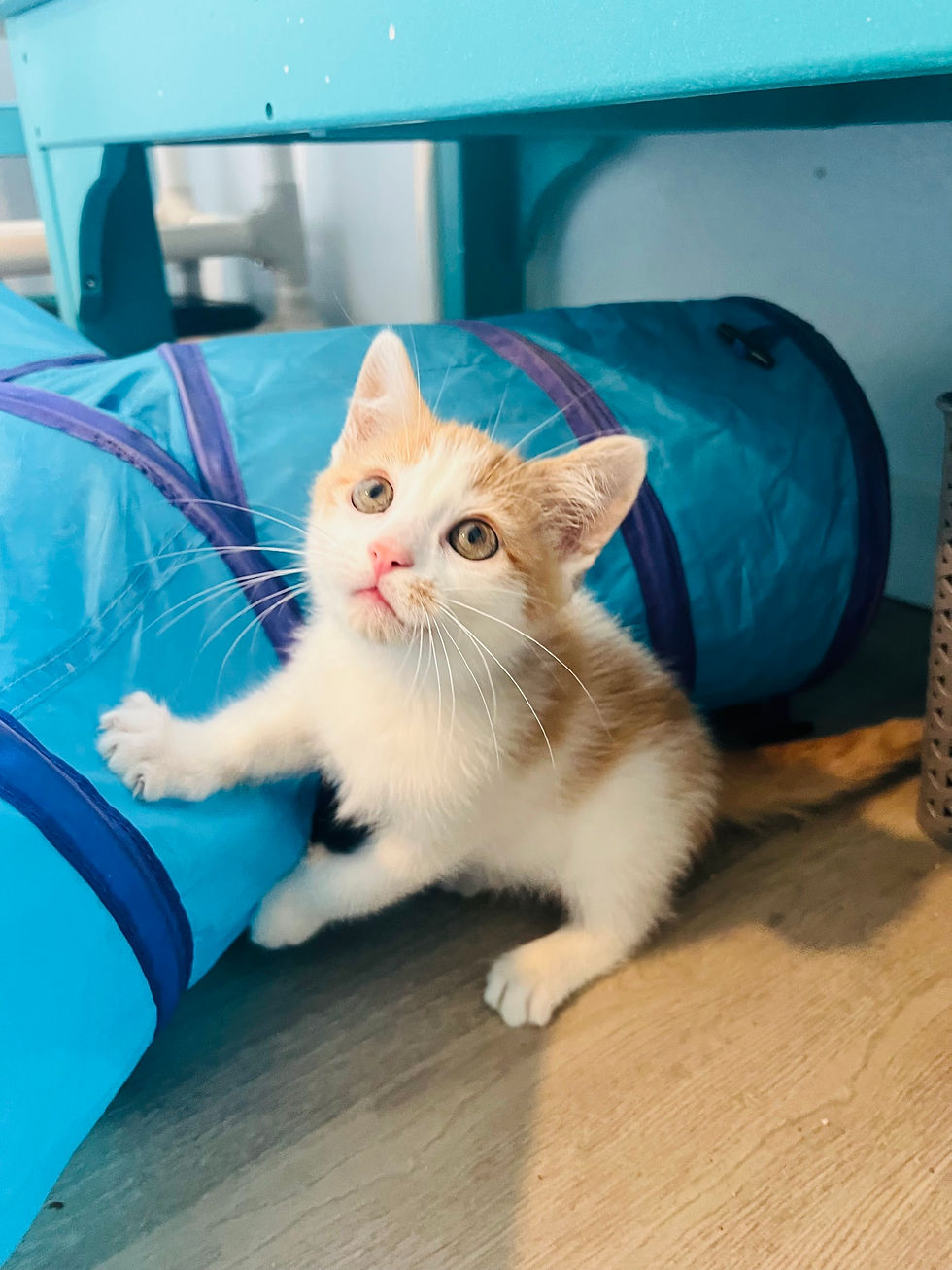How to Kitten-Proof Your Home Before Adopting
- Kitten Alliance

- Sep 27, 2023
- 3 min read
Updated: May 29, 2025

Bringing home a new kitten is so exciting, but it's important to ensure that your home is a safe and secure environment for your new friend.
Just like human toddlers, kittens are explorers by nature, and their curiosity can sometimes get them into trouble. To keep your new pet safe and prevent any accidents, here are some simple steps to kitten-proof your home before adopting a kitten.
Create a Safe Space
When you bring your new kitten home, it's essential to provide them with a designated safe space where they can retreat to when feeling overwhelmed. This can be a spare room or a corner of your house furnished with a cozy bed, food, water, toys, and a litter box. Make sure the area is properly secured, so there are no gaps or escape routes.
Secure Dangerous Areas
Kittens are incredibly agile and can squeeze into the tiniest spaces. Start by securing any openings, like gaps under doors or behind appliances, using door sweeps or baby gates. Be sure to block off areas with toxic substances like cleaning supplies, medications, or plants that are harmful to cats.
Remove Hazards
Inspect your home for any potential hazards that could harm your kitten. Electrical cords are a particular concern, as kittens may chew on them or get tangled up. Use cord protectors or conceal cords behind furniture to eliminate this risk. Keep breakable items, such as vases or glassware, out of reach, and secure heavy furniture to the wall to prevent tipping.
Lock Up Chemicals and Medications
Store all cleaning products, chemicals, and medications in secure cabinets or high shelves that are inaccessible to your curious kitten. Even seemingly harmless substances can be toxic to cats, so it's essential to keep them out of reach.
Check for Poisonous Plants
Many common houseplants are toxic to cats, including lilies, daffodils, and aloe vera. Before bringing your kitten home, research the plants you have in your house and remove any potentially harmful ones. Consider giving your kitten access to safe plants, like cat-friendly grass or catnip, to redirect their curiosity towards healthier options. Check out this helpful resources from the ASPCA: Toxic and Non-Toxic Plants List
Protect Small Objects
Kittens are notorious for batting small objects around. To prevent them from swallowing or choking on small items, like rubber bands, hair ties, coins, or jewelry, keep these items stored in closed drawers or containers. It's better to be safe than sorry!
Tuck Away Valuables
Your kitten will be full of energy and curiosity, and they won't discriminate when it comes to what they view as toys. To avoid any damage to your valuable possessions, keep them securely stored away.
Install Window Screens
Open windows pose a danger to kittens who might be tempted to jump out or accidentally fall through. Install secure window screens so that your kitten can enjoy the view without any risk.
Cover Electrical Outlets
To prevent your kitten from electrical shocks, cover all exposed outlets with outlet covers or furniture that blocks access. This will protect your kitten while also safeguarding your home from potential damage caused by their curiosity.
By taking these steps to kitten-proof your home, you are not only ensuring the safety and well-being of your new furry friend but also creating a peaceful and anxiety-free environment for both of you.
Remember, prevention is always better than cure, so take the time to make your home safe before bringing home your new kitten.




Comments